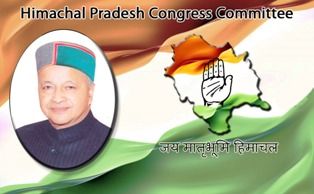New Delhi, April 7 (IANS) Gujarat Chief Minister Narendra Modi Sunday advocated for qualitative judicial reforms and emphasised that grading of various courts based on standard parameters should be developed for the quality of judgment.
Speaking at a conference of chief ministers of states and chief justices of high courts here, Modi said the judicial process and dispensation of justice mechanism requires a paradigm shift.
“In order to recognise people’s faith in the system and quality of judgments, our archaic laws and procedures need a fresh re-look, particularly those governing judicial process and procedures,” the Gujarat chief minister said.
He said the ultimate goal is to achieve the highest standards of transparency and speedy justice delivery at affordable costs.
He said that instead of ‘gram nyayalayas’, ‘mobile taluka courts’ should be run for remote villages, once in a month.
“To fulfil a vision of having at least one court in each of the 225 talukas in Gujarat, 183 courts of civil judge have been made functional, resulting in speedy disposal of litigations at local village levels,” he said.
Modi said Gujarat was the first state in the country to set up evening courts in 2006. “In recent years, 102 such courts have been established in Gujarat and more than 9.06 lakh cases disposed off.”
“It has been so successful that in many of these courts, there are no cases and, therefore, 14 evening courts have been closed, as directed by the high court,” he noted.
During the last five years, the state has invested heavily in the computerisation of courts, he said.
Regretting the decision of the Congress-led United Progressive Alliance (UPA) government for closing or stopping support to fast track courts, Modi said such initiative to deliver justice faster has had a great impact in deepening peoples’ faith in the justice delivery system.
“Through speedy trials, fast-track courts also contribute to the reduction of arrears,” he added.
Focusing on judicial reforms, he said the state government has established a Juvenile Justice Board and a child welfare committee in every district to deal with cases pertaining to juveniles in conflict with the law.
“Lok adalats and legal literacy camps are organised by the Gujarat State Legal Authority, where services of retired judges are utilised. From their inception till the end of 2012, 1,30,588 lok adalats have been organised in which 63,28,452 cases have been disposed of,” Modi said.
He also pointed out the need to reduce time judicial officers spend on administrative functions and to carry out legal processes in local and vernacular languages so as to cut down on intricacies in making judicial procedures.
The opinions, beliefs and viewpoints expressed by authors, news service providers on this page do not necessarily reflect the opinions, beliefs and viewpoints of Hill Post. Any views or opinions are not intended to malign any religion, ethnic group, club, organization, company, or individual.
Hill Post makes no representations as to the accuracy or completeness of any information on this site page.


